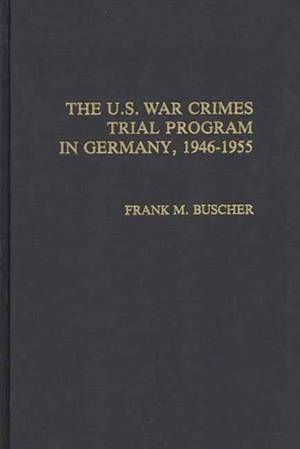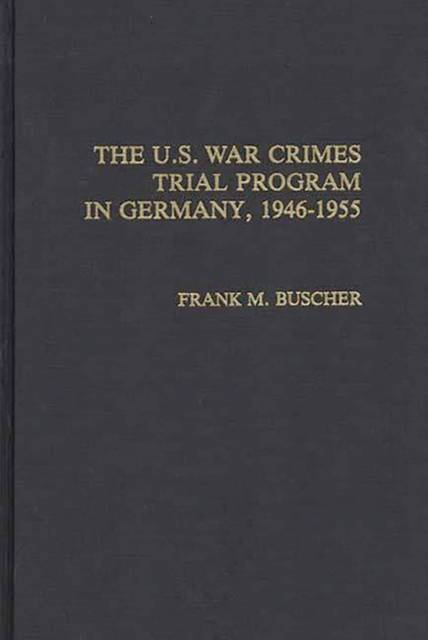
- Afhalen na 1 uur in een winkel met voorraad
- Gratis thuislevering in België vanaf € 30
- Ruim aanbod met 7 miljoen producten
- Afhalen na 1 uur in een winkel met voorraad
- Gratis thuislevering in België vanaf € 30
- Ruim aanbod met 7 miljoen producten
Omschrijving
Although more than 40 years have passed since the end of World War II, the subject of Nazi war criminals remains a timely and emotionally charged topic of interest to scholars as well as the general public. Administered jointly by the four major Allies, the Nuremberg trial of Hermann Goering and Joachim von Ribbentrop, among other Nazi leaders, has drawn much attention over the years. It was the U.S. Army, however, which was most active in bringing Nazi war criminals to justice and, between 1944 and 1947, the army prosecuted 1,672 individuals for violations of the laws of war. Most of the army's trials remained obscure and little-noticed, even though they dealt with almost 90 percent of all defendants in the American zone.
This study examines the treatment of prominent and lesser-known war criminals in the U.S. Zone of Occupation, covering both the trial and clemency aspects of the American war crimes program. In addition, it also explores the relationship between the war criminals issue and U.S. efforts to democratize the Germans, German nationalism, U.S. constitutional issues, the cold war and German rearmament in the 1950s. Finally, the study analyzes the extent to which the U.S. Army war crimes program achieved its stated goals. Based on unpublished sources from both the United States and West Germany, many of which have only recently been declassified, this book provides fresh insight on Nazi war criminals and their treatment, as well as important issues relating to post-war Germany. This book will be of special interest to scholars and historians specializing in European and modern history, post-war Germany, U.S. foreign relations since World War II, the Holocaust, and U.S. military justice and war criminals.Specificaties
Betrokkenen
- Auteur(s):
- Uitgeverij:
Inhoud
- Aantal bladzijden:
- 197
- Taal:
- Engels
- Reeks:
Eigenschappen
- Productcode (EAN):
- 9780313264719
- Verschijningsdatum:
- 27/03/1989
- Uitvoering:
- Hardcover
- Formaat:
- Genaaid
- Afmetingen:
- 156 mm x 234 mm
- Gewicht:
- 471 g

Alleen bij Standaard Boekhandel
Beoordelingen
We publiceren alleen reviews die voldoen aan de voorwaarden voor reviews. Bekijk onze voorwaarden voor reviews.











